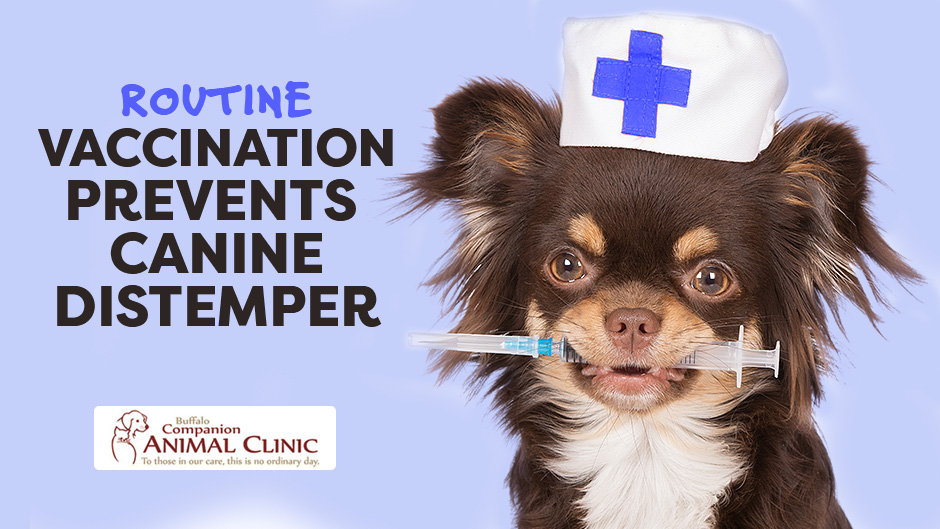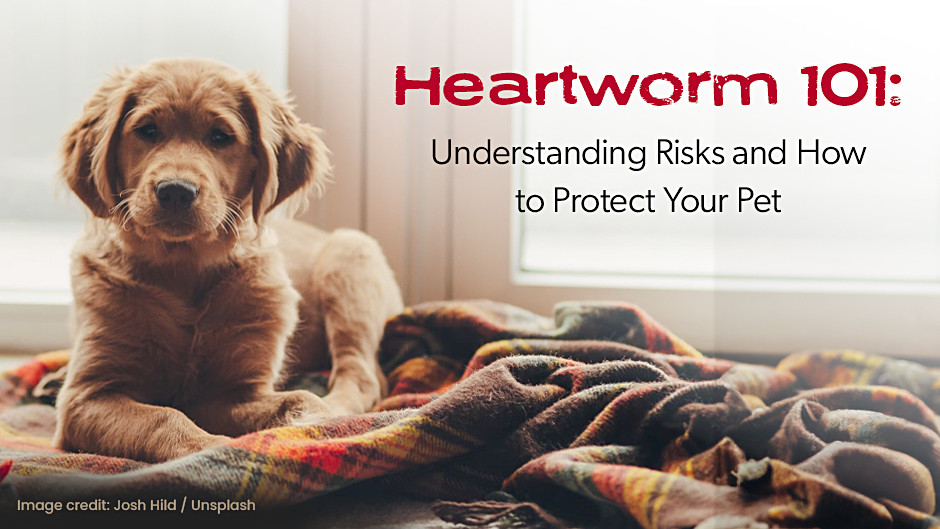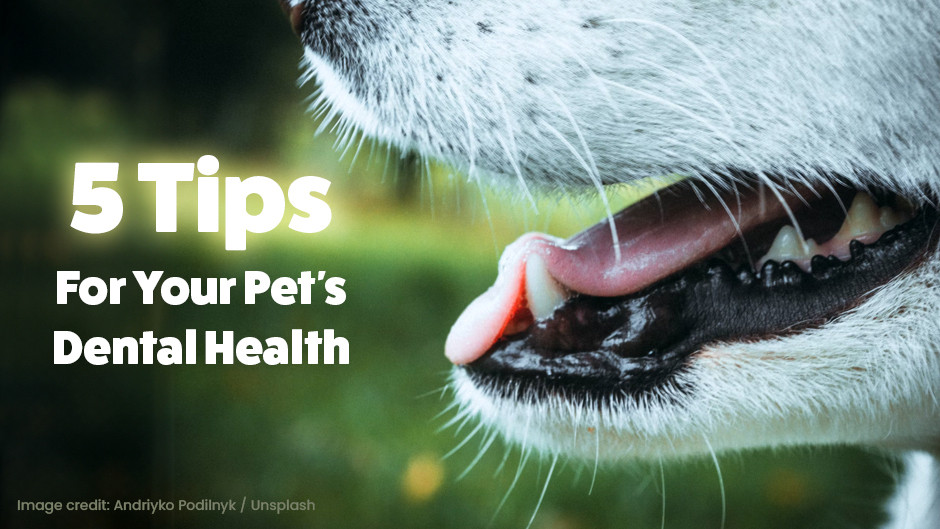Pet Health Articles
Routine Vaccination Prevents Canine Distemper
2017-02-24

I've heard the stories from my dog friends and canine distemper is nasty stuff. You can make sure your dog doesn't get it by scheduling a vaccination at Buffalo Companion Animal Clinic. Your dog might protest, but all will be forgiven quickly.
All my best,
Carlos
Canine distemper is serious and highly contagious viral disease that attacks the nervous, gastrointestinal, and respiratory systems of puppies and dogs. Thanks to routine vaccination, you may have never heard about a dog acquiring distemper. Some dog owners skip the original vaccination or booster shots because their pet seems perfectly fine. Not getting vaccinated on schedule is the biggest risk factor for canine distemper.
What is Canine Distemper?
A dog infected with distemper can spread it to another dog through blood, saliva, or urine. That means your dog could acquire the virus just by sharing a food bowl with an infected dog or being getting sprayed by sneeze droplets. The virus can move quickly once inside of your dog’s body. Some of the most common symptoms of distemper include:
What is Canine Distemper?
A dog infected with distemper can spread it to another dog through blood, saliva, or urine. That means your dog could acquire the virus just by sharing a food bowl with an infected dog or being getting sprayed by sneeze droplets. The virus can move quickly once inside of your dog’s body. Some of the most common symptoms of distemper include:
- Coughing
- Diarrhea
- Discharge from eyes or nose
- Fever
- Lethargy
- Loss of appetite
- Sneezing
- Vomiting
Wild animals can also carry the distemper virus. It has been reported in:
- Coyotes
- Ferrets
- Foxes
- Lions
- Leopards
- Minks
- Raccoons
- Seals
- Skunks
- Tigers
- Wolves
For this reason, it’s essential to keep your dog away from any wild animal. Pregnant dogs can transmit distemper to their puppies through the placenta. Once infected, a dog can continue shedding the virus for several months. Puppies younger than four months old and unvaccinated dogs are at the greatest risk of developing canine distemper.
Diagnosis and Treatment of Canine Distemper
If your dog displays the symptoms listed above, please schedule an evaluation at Buffalo Companion Animal Hospital as soon as possible. We diagnose distemper through laboratory testing and clinical observation. Unfortunately, no cure currently exists. All we can do is treat your dog’s symptoms, such as offering fluids to prevent dehydration and anti-nausea medication. Once diagnosed with distemper, you must keep your dog isolated from other dogs until all symptoms have cleared.
The Distemper Vaccination
Puppies receive natural immunity from their mother if she received the distemper vaccination. However, this already starts wearing off by about six weeks of age. We recommend getting your puppy’s first vaccine between six and nine weeks old. Canine distemper is part of a core vaccine that also includes parvovirus, parainfluenza, hepatitis, and adenovirus. Your puppy should get the second dose at 12 weeks of age and then won’t need a booster until one year. The American Veterinary Medical Association recommends that adult dogs receive the vaccination every three years.
Feel free to contact us for more tips about controlling this virus or to request an appointment.









